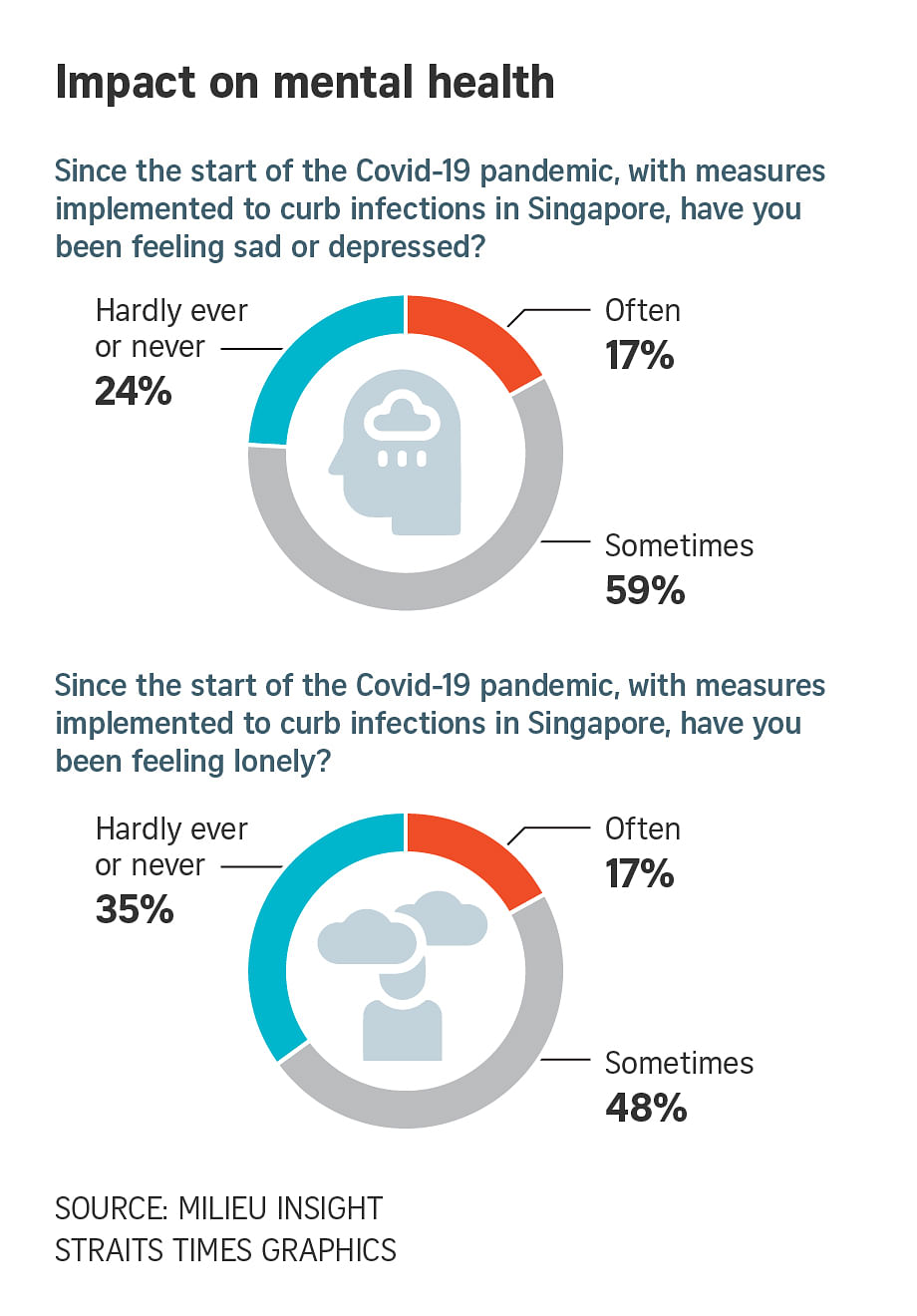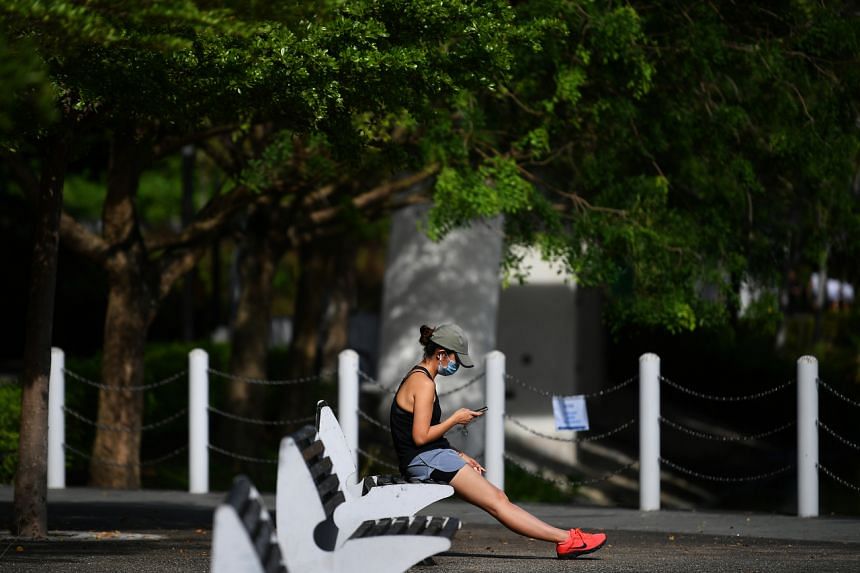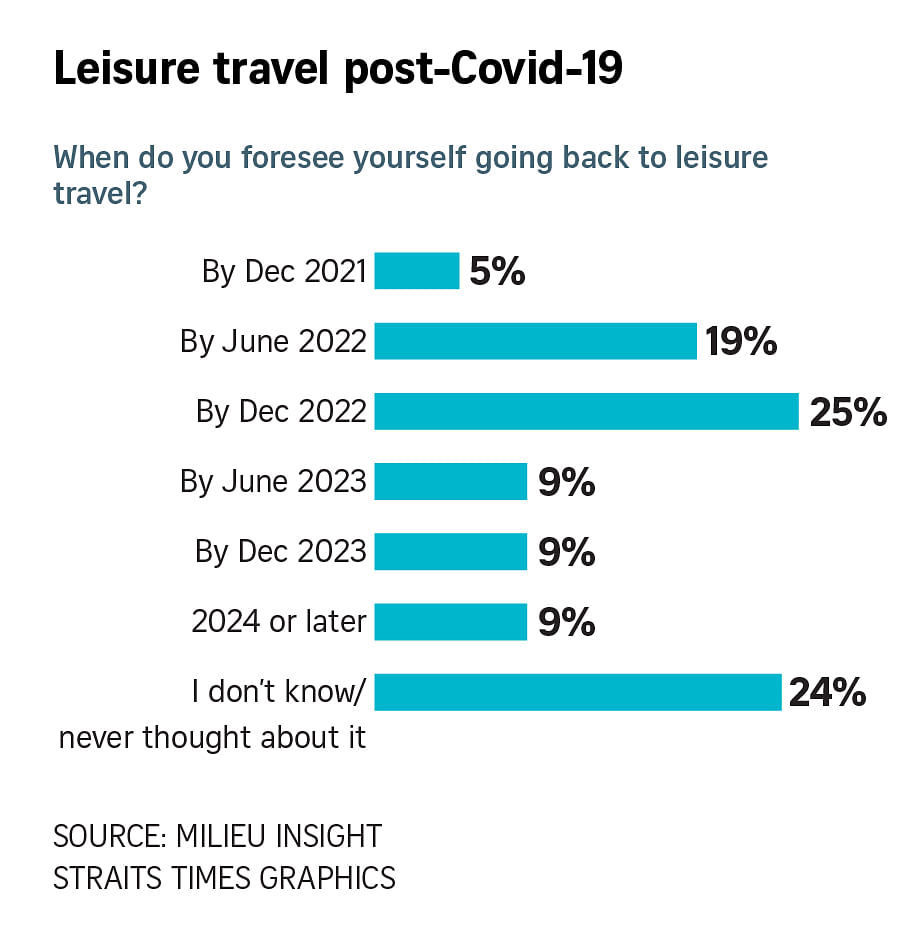More than 4 in 10 prepared to wait longer for hospital treatment if healthcare under strain: Survey
SINGAPORE – Forty-two per cent of people here are willing to wait longer for their turn to receive in-patient non-urgent care at hospitals, if beds are filled up by Covid-19 patients, according to a survey.
Fifty-two per cent of those polled are willing to do the same for outpatient non-urgent care.
Among the second group, 22 per cent are willing to wait two to four weeks for their turn to receive treatment, and 24 per cent are willing to wait one to three months.
Twenty-three per cent are willing to wait even longer – three months to a year.
This is despite the fact that more than a quarter of those surveyed said their physical health has worsened compared with before the pandemic. Over half said it has remained about the same.
Associate Professor Jeremy Lim of the National University of Singapore’s Saw Swee Hock School of Public Health told The Straits Times that the survey results are “concerning”, as it appears people are not fully coming to terms with the fact that Covid-19 is here to stay.
“The future reality will be reopening punctuated with unpredictable pauses and ‘tapping the brakes’, as Minister Ong described. Hence, waiting for down times in activities with long lead times and much pre-planning, such as healthcare, is just not realistic,” said Prof Lim.
“We really should be living life as normally as we can despite Covid-19 – and trust the healthcare professionals to schedule with our best interests while balancing Covid-19 realities.”
By tightening restrictions now, Singapore is essentially “tapping the brakes” to slow the surge in Covid-19 cases here, said Health Minister Ong Ye Kung during an update on the state of the pandemic on Friday (Sept 24).
To cope with the spike in cases, the number of Covid-19 hospital beds here has been increased from 1,000 to 1,600. But this comes at the expense of some degradation of normal services, said Mr Ong.
To reduce the strain on hospital resources, the Health Ministry has commissioned a new class of facility for closer monitoring and management of patients with chronic illnesses.
Singapore has also rolled out a home recovery programme. More than 40 per cent of daily cases are now put on this programme.
Without the home recovery programme, the healthcare system would have been overwhelmed, the minister added.
People’s mental health has also taken a beating amid the long-drawn pandemic.
Fifty-four per cent of the respondents felt that Covid-19 had “somewhat” or “definitely” changed their lives for the worse.
Seventy-six per cent experienced sadness or depression “sometimes” or “often”, and 65 per cent had felt lonely since Covid-19 began.
About one-fifth of those surveyed said they felt such emotions “often” during the pandemic.
The online survey was commissioned by The Straits Times and conducted by market research firm Milieu Insight from Sept 20 to 22.
The survey was conducted before the announcement last Friday to limit dining in to two persons who are fully vaccinated.
National University of Singapore sociologist Tan Ern Ser said the high proportion of Singaporeans feeling sad or depressed is not surprising, as most of them did not envisage the pandemic would last so long.
“The several steps forward and then backward must have worn people down,” he said.
“They believed that being vaccinated and having a high proportion of vaccinated constitute seeing the light at the end of the tunnel. They were even prepared to live with an endemic. But now, there are the all-too-familiar restrictions.”
Prof Tan added that it is important to ensure people’s livelihoods are not severely affected, and to help them adjust to the new normal.
In addition to more support from the Government, social service offices, religious organisations and community organisations, individuals must practise self-care too, he said.
This involves physical exercise, learning to be resilient by setting reasonable goals, and surrounding oneself with a supportive family and social network.
With Covid-19 restrictions ratcheting up and down over the past year and a half, people have also consciously scaled back their outdoor and social activities.
Forty-two per cent of those surveyed have gone out less for physical activities such as jogging and hiking.
Eleven per cent have not done any outdoor physical activity since Covid-19 started.
Over 60 per cent are shopping less often in physical stores. They have also cut back on dining out and meeting in groups of five or more.
Eighty-five per cent have not travelled overseas since the pandemic started. But as countries around the world reopen their borders, 44 per cent expect to resume their leisure travel soon, in 2022.
Nineteen per cent are optimistic they can do so by June 2022, and 25 per cent believe they can do so by December 2022.
Eighteen per cent expect to resume travel only in 2023, and 9 per cent in 2024 or later.
Join ST’s Telegram channel here and get the latest breaking news delivered to you.
Source: Read Full Article





